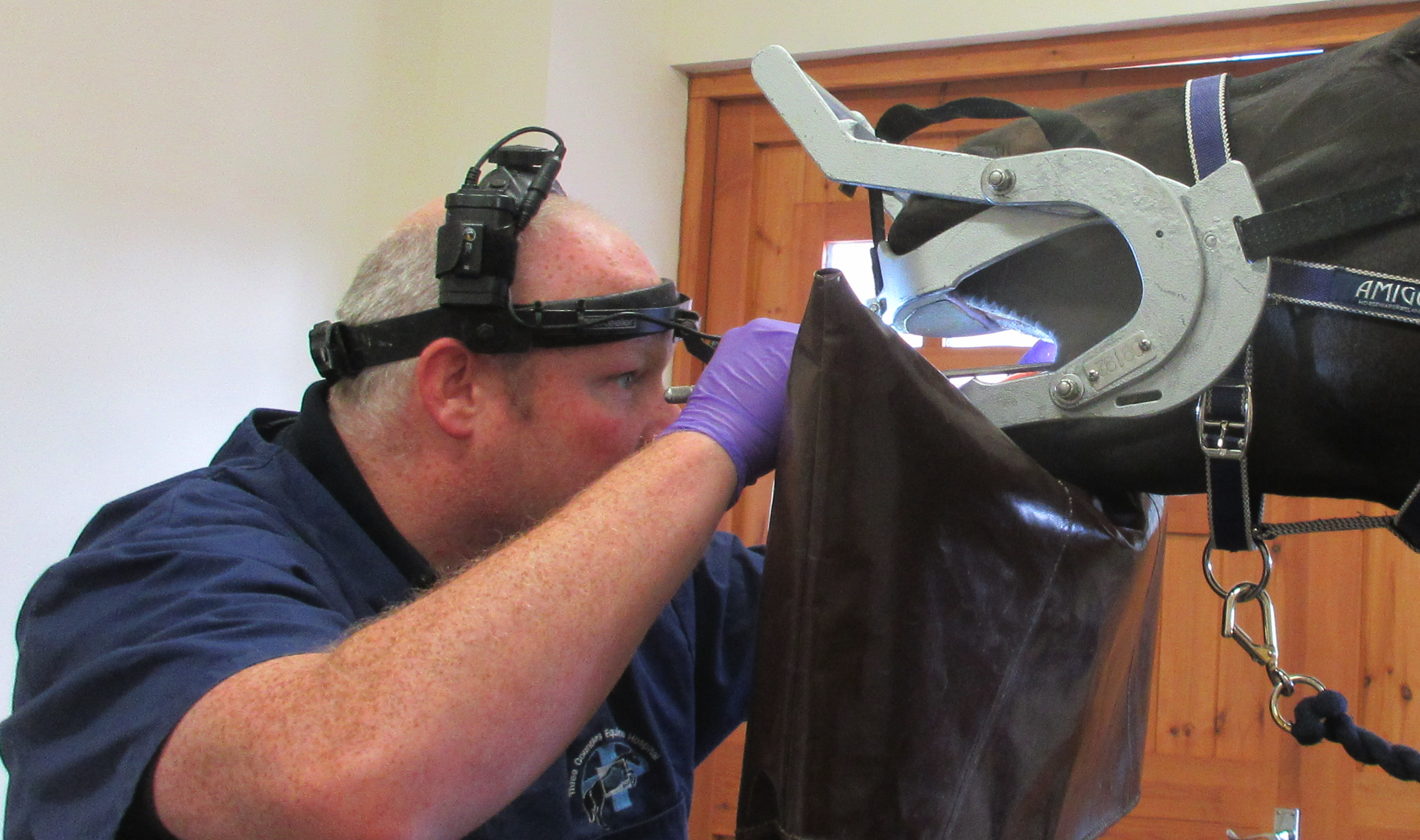Dentistry
Choosing who to provide routine dental care for your horse can seem daunting with the huge diversity of both good and bad dental care providers available. These choices can include your equine vet and both qualified or unqualified equine dental technicians. The term ‘dentist’ is a protected term only to be used by human dentists; there is no such thing as an equine dentist.

Routine dentistry in the horse is not just about the rasping the teeth – in fact that part is the straightforward part. The examination of the mouth is by far the most important feature of equine dentistry, just as it is in human dentistry. Equine vets are trained not only to look at the whole of horse’s mouth but also the horse as a whole; remember that the mouth is just the beginning of the horse’s digestive tract. Appropriate knowledge of dental anatomy and disorders allows early diagnosis of problems and subsequent treatment to be performed before a serious problem develops. Under the Veterinary Surgeons Act (1966) a “diagnosis” can ONLY be reached by a qualified veterinary surgeon.
As the examination of the mouth is the most important part of dentistry, the more detailed it can be, the better. For the most thorough examination to be performed this should involve sedation in all but the best-behaved horses. Horses suffering from oral pain or those who have an existing dental problem should be sedated for both a complete examination and subsequent treatment. For painful procedures such as wolf tooth removal or removal of food between cheek teeth, your equine vet will be able to provide pain relief and local anaesthetic to make the procedure as pain-free as possible.
Other ancillary aids such as radiography may be required to reach a diagnosis which can only be performed by veterinary surgeons. And remember that ONLY veterinary surgeons can administer treatments such as antibiotics and anti-inflammatories and dispense oral sedatives.
There are now many equine vets who have undertaken further qualifications in equine dentistry. The most qualified of these are RCVS Specialists who have undergone rigorous Diploma examinations and are members of either the European or American Veterinary Dental Colleges. The Specialist list is tightly controlled and members must continue to show high levels of expertise in equine dentistry and re-accredit with both their parent college and the RCVS. Your equine vet can refer both routine or advanced cases to one of these specialists. These are the only group of people who can call themselves Equine Dental Specialists.
There are also equine vets who have undergone post-graduate training in equine dentistry and passed rigorous examinations set by the RCVS to attain Advanced Practitioner Status in Equine Dentistry. Vets on this list have demonstrated knowledge and experience in equine dentistry beyond their veterinary degree, but who have also confirmed that they continue to be up to date in their field over and above the RCVS requirements for continuing professional development (CPD).
There are also vets who have sat and passed the BEVA BVDA Equine Dental Technician Exam. A list of BEVA members who have passed this exam can be found here.
If you choose to use an equine dental technician to provide routine dental care for your horse, BEVA would recommend only using those who are members of the British Association of Equine Dental Technicians (BAEDT) or category 2 members of the World Wide Association of Equine Dentists (WWAED). These technicians have undergone approved examinations to attain their qualifications, have to maintain their continuing professional development and abide by the association code of conduct; those that don’t will often be removed from their societies membership. As such some veterinary practices will only provide sedation for those on the lists.
There is tight control over procedures that equine dental technicians may perform. The list in full can be accessed here. In summary Category 1 procedures can be performed by everyone including unqualified dental technicians; Category 2 procedures may only be performed by qualified dental technicians and vets; Category 3 procedures can only be performed by veterinary surgeons.